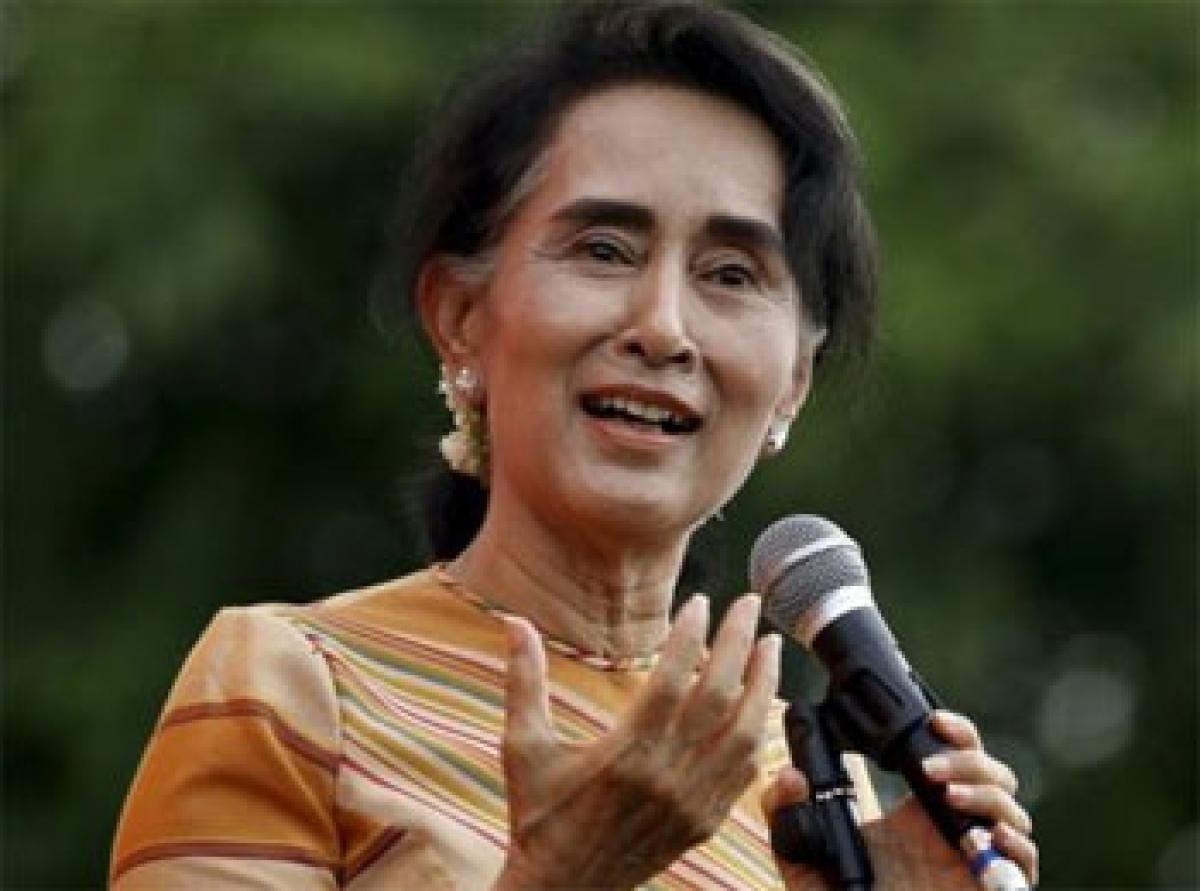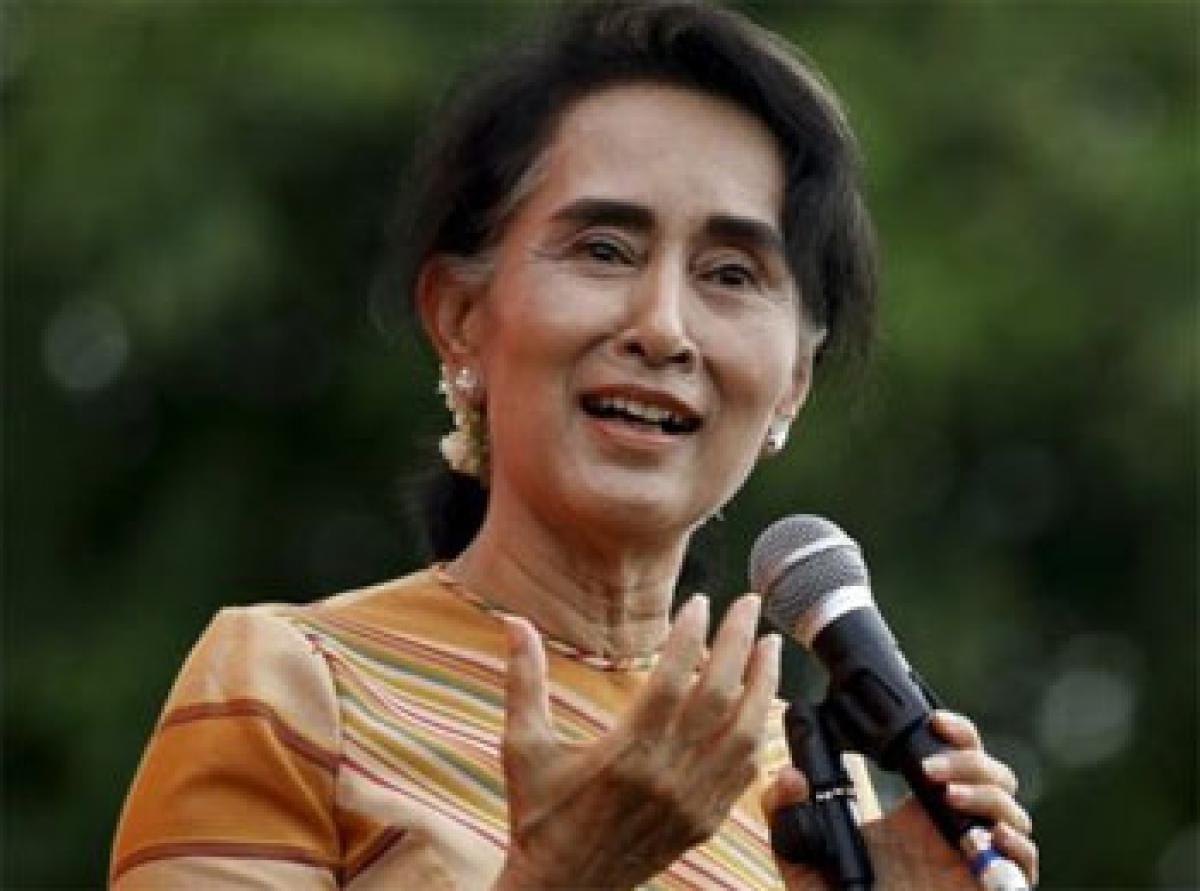Live
- A Guide to Temperature and Humidity Standards in Data Center Server Rooms
- Gadwal collector briefs on details of voters
- Jupally Krishna Rao takes part in Alampur rallu
- Bharath Prasad files 3rd Nomination
- Baisakh Month: A Time of Auspicious Beginnings and Sacred Festivals
- Oust BJD govt for overall development, says Shah
- Unveiling the Hidden Gems: Surprising Health Benefits of Garlic Peels
- Overcoming Sleep Struggles: A Comprehensive Guide to a Restful Night
- RTC bus hit the auto
- MLA Kuchukula Rajesh Reddy participated in the Birappa festival
Just In

The opposition National League for Democracy (NLD) led by legendary leader Aung San Suu Kyi has swept the historic elections in Myanmar. Given the turbulent history of the country’s polity, this election and its momentous verdict in favour of the movement for democracy is a happy augury, of course, with certain caveats.
 The opposition National League for Democracy (NLD) led by legendary leader Aung San Suu Kyi has swept the historic elections in Myanmar. Given the turbulent history of the country’s polity, this election and its momentous verdict in favour of the movement for democracy is a happy augury, of course, with certain caveats.
The opposition National League for Democracy (NLD) led by legendary leader Aung San Suu Kyi has swept the historic elections in Myanmar. Given the turbulent history of the country’s polity, this election and its momentous verdict in favour of the movement for democracy is a happy augury, of course, with certain caveats.
The military junta ruled the country for five decades. A military-sponsored quasi–civilian dispensation has been running the government since 2011. Unlike in 1990s, the ruling regime now promised a smooth transition of power. On her part, Suu Kyi has called for a national reconciliation through a dialogue with army and the government backed by it. These developments certainly raise fresh hopes for a democratic Myanmar.
Hundreds died and thousands were jailed in the decades of military crackdown on the movement for democracy. The country has been facing ethnic strife and religious extremism, too. Despite being a resource-rich land, the nation’s economy passed through turbulent times.
A peaceful transition is, therefore, vital for social, political and economic stability of our strategic neighbour. India has lot of stakes in this region. Myanmar has abundant hydro carbon reserves. Besides, the stability of prosperity of India’s North East greatly depends on Myanmar as it is the gateway to South East Asia.
In fact, Suu Kyi won the 1990 elections by a landslide margin. But, army refused to transfer power. Even now, army hatched a constitutional conspiracy to prevent Suu Kyi from holding a constitutional office. The Army-sponsored 2008 Constitution bars anyone with foreign children/husband from holding the presidency. Suu Kyi’s sons are British citizens like her late husband. Therefore, this constitutional provision was primarily aimed at ensuring that this charismatic leader cannot hold power directly despite people’s overwhelming mandate.
The present Constitution that facilitated this election has provisions even to undermine the people’s mandate. The army will have 25 per cent of parliamentary seats uncontested. However, the NLD and its leader seems to have reconciled to the fact that democracy would be delivered in installments only.
This is evident from her efforts to reach out to military and its civilian allies immediately after the announcement of results. This makes us hopeful of Myanmar’s peaceful transition to democracy, though military stranglehold on polity may continue for sometime. However, the abysmal performance of Union Solidarity and Development Party (USDP), the political mukhauta of military junta, is a welcome feature.
Myanmar faces a serious ethnic challenge, too. The Rohingya Muslims face persistent attacks. This persecuted minority in Myanmar has been a victim of ethnic violence, economic disempowerment and disenfranchisement.
Myanmar urgently needs not just a political reconciliation with the military but even social rapprochement among religious and ethnic groups. The rise of Buddhist extremist tendencies is also causing ethnic violence in Myanmar as in Sri Lanka.
Myanmar still suffers from the ill-effects of the British colonial policy of divide and rule. Unlike in Nepal, the Indian foreign policy should enable Myanmar’s tryst with destiny peaceful, reconciliatory and democratic.

© 2024 Hyderabad Media House Limited/The Hans India. All rights reserved. Powered by hocalwire.com







